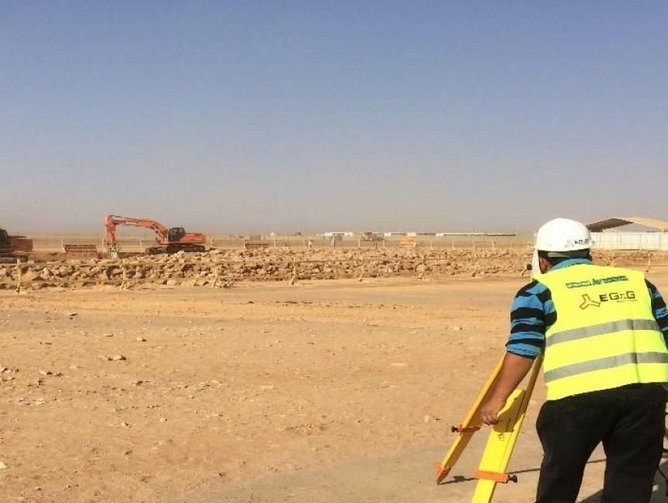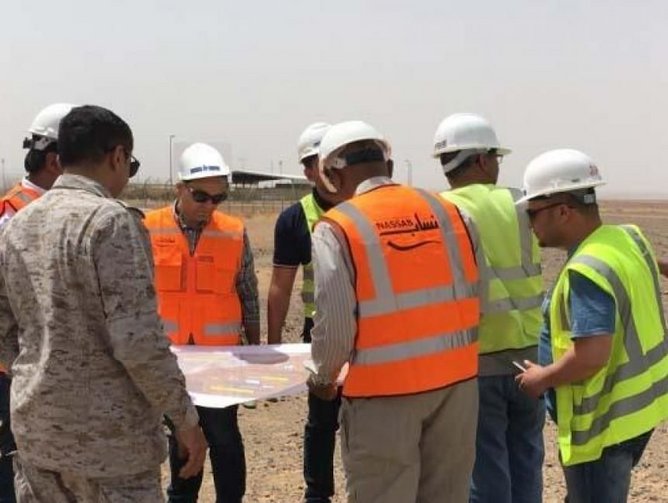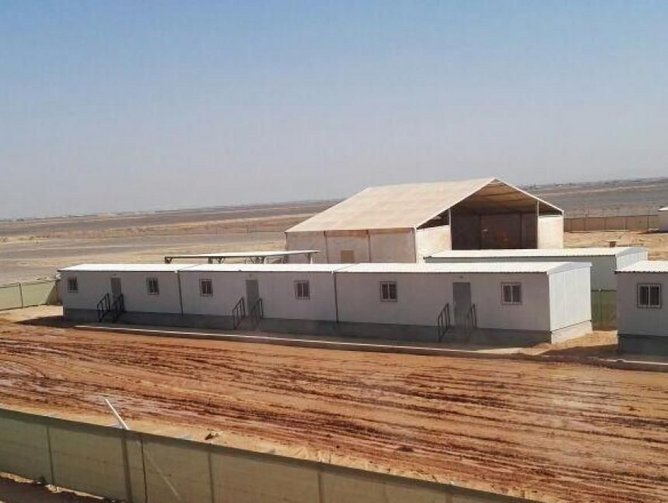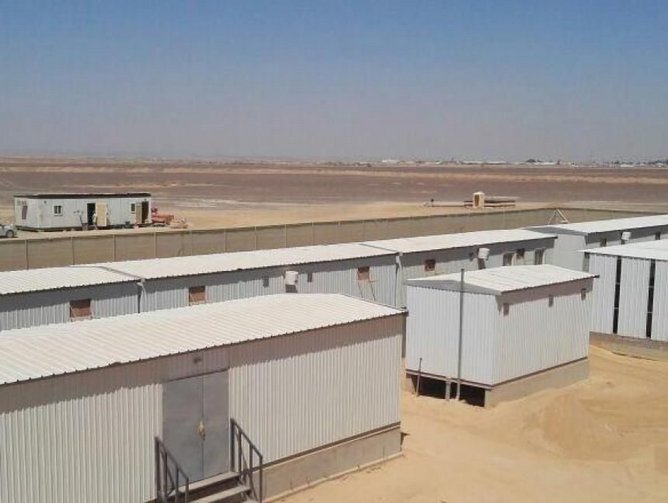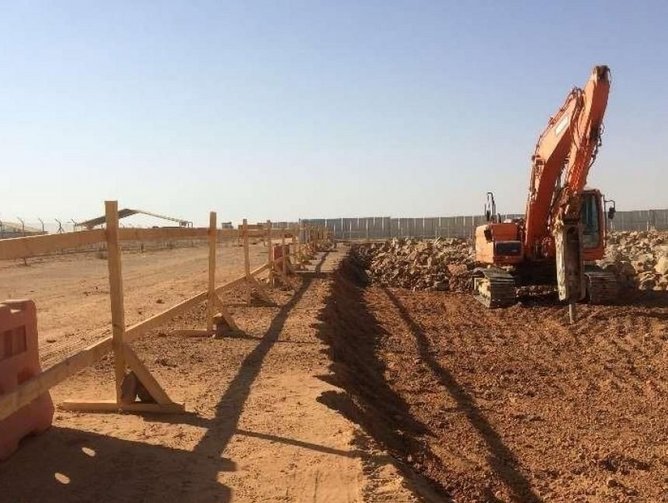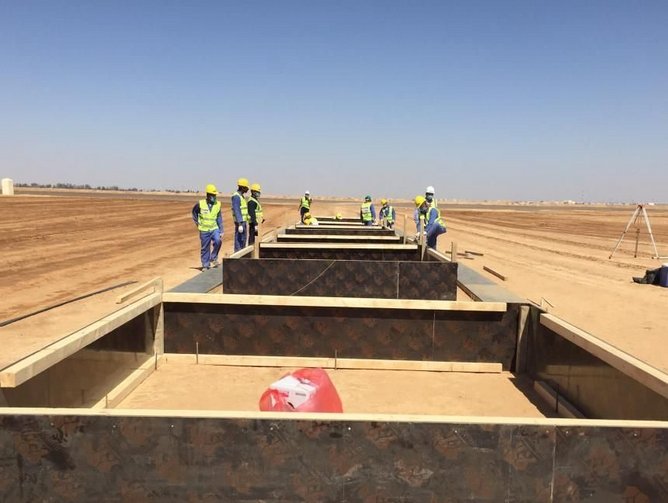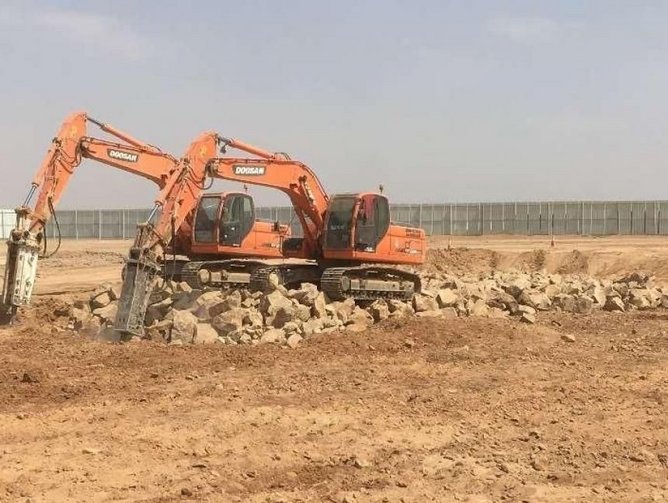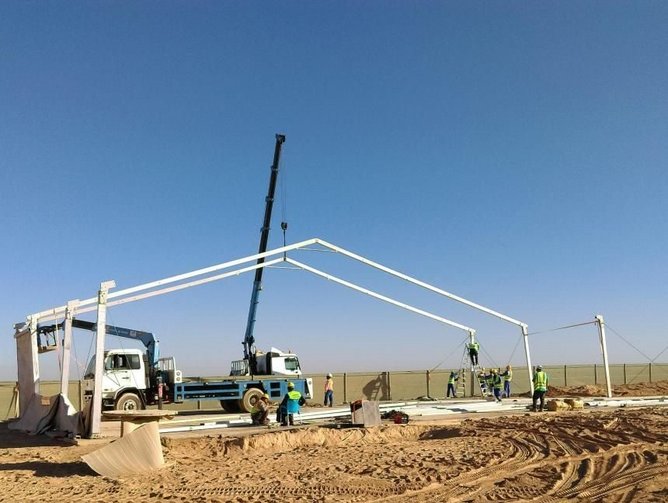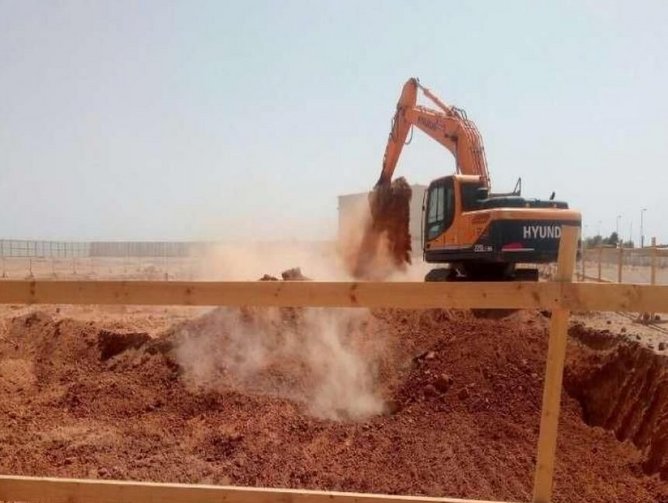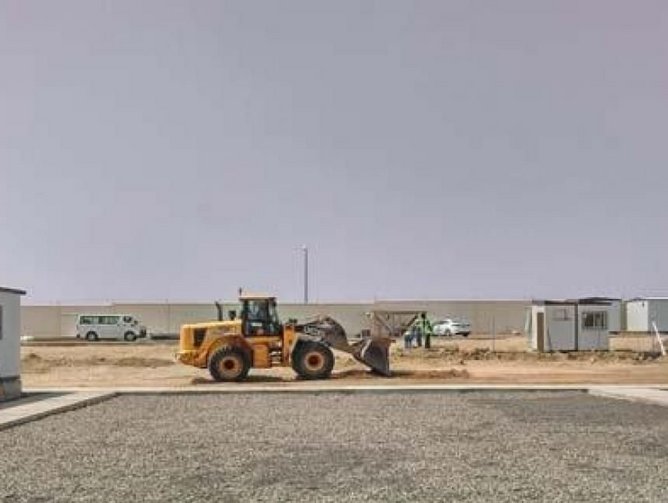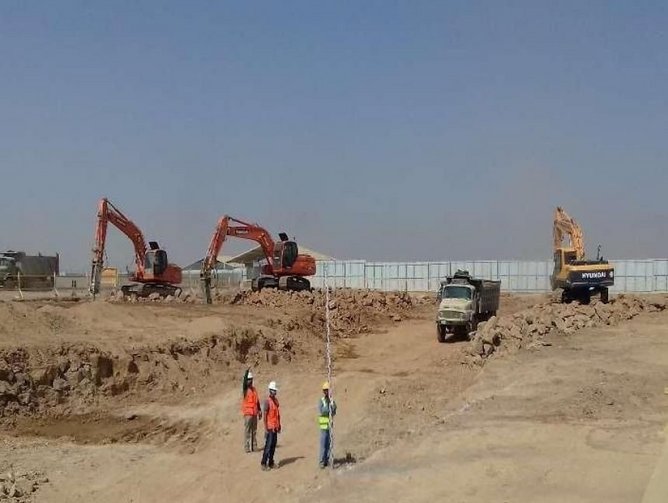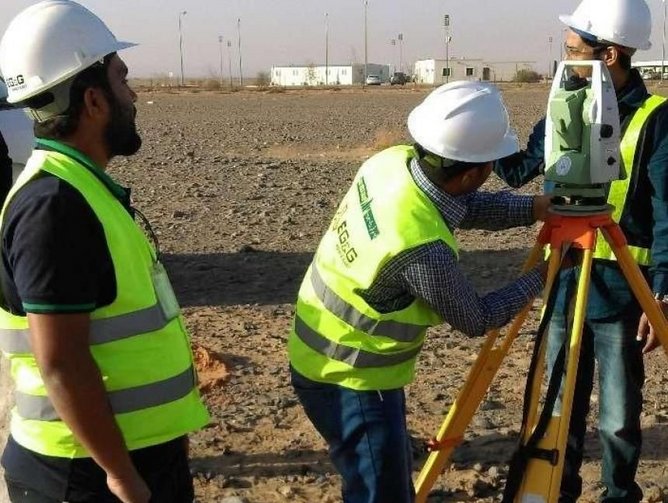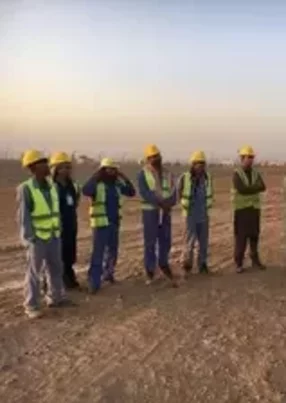Founded in 1992, Nassab Contracting & Trading Ltd (NCTC) has established itself as a leading supplier of high skilled construction services, construction materials and engineering services throughout the Kingdom of Saudi Arabia.
Having spent the best part of two decades collaborating with world class partners, NCTC has successfully designed and completed hundreds of projects across Saudi Arabia, the wider Middle East and Africa.
Currently working on the $1.5bn Apache Program, a design build programme as part of the US Foreign Military Sales Program (FMS), Nassab has taken on the role of consultant, pulling all the necessary skills and expertise together to deliver a world class project.
Heading up this programme is Thomas Maher, Construction Director. With over 20 years’ experience working in Project and Construction Management all over the world, including the Middle East, Maher can call upon his experience operating in international markets to successfully navigate such a significant project and the challenges that come with it.
“The challenge working for any US Government entity is working within a specific set of rules and regulations,” says Maher. “Acquisitions, procurement, supplier relationships, you name it. But naturally, not every country has those same regulations and rules, so it becomes a case of square peg, round hole.
“Having worked internationally, I understand the different cultures and, more importantly, how to integrate these different systems and regulations that don’t necessarily align with each other.”
Maher points to multiple examples over the years of US organisations looking to operate in Saudi Arabia and refusing to adapt their processes and ways of working, stubbornly sticking to the one size fits all mentality that can only result in failure.
The Apache Program is a multi-phase design build programme, funded through the Ministry of Defense and managed through the US Army Corps. Over a five-phase program, Nassab will oversee the construction of apache helicopter hangers, ground support equipment facilities, helicopter runways and taxiways across Dammam, Tabuk, Khanus-Mushait, Al Kharj and Qassim.
Nassab is a locally owned Saudi Company that is using the US model of construction management that includes an additional 8-12 American Directors and Managers to teach, train and implement the successful American model.
Maher believes that where the company can stand tall against other companies is in its focus on the defence market and an all-important local touch.
“There’s a real opportunity here for construction and engineering in the defence industry,” he says. “And we feel that being a local entity, with a US feel and using US systems and expertise, while remaining a local Saudi company, is somewhat unique here.”
The Apache Program is currently in the phase one design stage, with Maher and Nassab working on and foundations and civil work that will come as the company moves fully into the construction phase. Overall, the company is looking at completing the entire program within the next five years and will work closely with ABV Rock (EG&G Middle East), the contractor awarded the project, to deliver it on time.
It is through working closely with ABV Rock (EG&G Middle East), which has over 40 years’ experience working on major projects in the Middle East, that Nassab plays more of a consultancy role.
“ABV Rock (EG&G Middle East) although a fully capable Saudi Contractor, didn’t really have any experience in working with US Army Corps engineering, so we were hired by the company to put together a group of people that had the right qualifications, the experience and the expertise to manage and run a US Army Corps project,” he says.
“We were brought in to handle the overall project management, supplying the construction managers and project managers, the quality control teams, the safety teams and really supporting ABV Rock throughout the execution of the project.”
Naturally, and common across organisations operating in the Middle East, there is a reliance on expat labour. With a project involving the US Army Corps, it requires a certain understanding and necessary skillset in order to deliver it effectively.
Maher understands the challenge this brings and has developed a workforce made up of experienced individuals he has worked with before so he can understand their capabilities and what they can achieve with the Apache Program.
With that in mind, however, governmental regulations are set to change in the coming years, requiring foreign companies working within KSA to rely less and less on expat labour and have a significant Saudi workforce.
“We’ve started to look at younger local engineers that perhaps don’t have the experience and bringing them into the organisation,” says Maher. “It benefits them of course, but it benefits us in the sense that we are developing them right now. Fast forward three or four years and suddenly these young inexperienced engineers are fully capable and fully trained to work on US Army Corps projects.”
The success of the Apache Program, and ultimately Nassab Group, lies in the relationship the company develops and fosters with vendors, contractors and strategic partners.
To this end, Maher believes the key component for the vendors is understanding what exactly it is that Nassab brings to the table, the experience of the company and, more importantly, to grasp the scope of US Army Corps investment that’s coming in the near future.
“The reality that’s facing the Saudi Arabian construction industry is that it is on fire right now,” says Maher. “In the coming years the US Army Corps will invest billions of dollars into construction projects, much like the Apache Project, so it’s important that there is that shared understanding from the vendors in order for us to continue to foster a mutually beneficial relationship moving forward.”
Looking to the future, Nassab’s focus for the immediate term is on the Apache Project, but Maher has one eye on the FMS construction space. This, he feels, really enables Nassab to be competitive and to showcase that US expertise with the local Saudi understanding.
“We bring that unique element that will see the vendors bring the construction and the project, while we bring the speciality personnel and the experience in order to successfully deliver the project requirements,” he says.
